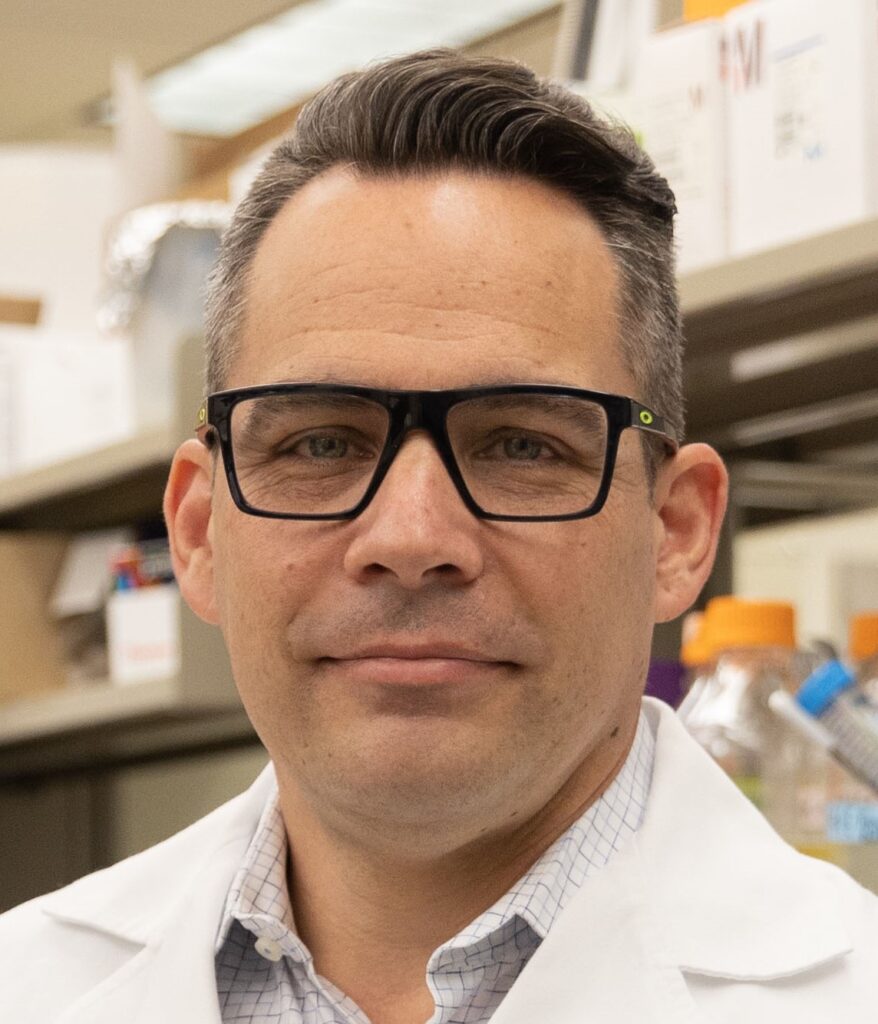November 22, 2023

Anthony Flores, MD, MPH, PhD, FPIDS, is tenured Professor and Chief of Infectious Diseases in the Department of Pediatrics at McGovern Medical School in Houston, TX. He earned his medical degree at University of Rochester School of Medicine and Dentistry. Both his residency and fellowship were completed at Baylor College of Medicine. His research focuses on the genomic epidemiology and virulence mechanisms of pathogenic streptococci (group A and B streptococci) and is funded by grant awards from the NIH/NIAID.
Dr. Flores is the chair of the Inclusion, Diversity, Access & Equity Task Force (which will be elevated to committee status in December) and was elected to the Board of Directors in the most recent Society election. He began his tenure during IDWeek in Boston.
Why Pediatric ID? The best explanation is probably a series of small steps. What influenced me first was my interest in pediatrics. Some would say that is because I’m just a big kid, but I connected better with kids than I did with adults. I felt a stronger pull in that direction. Another influence was the development of my research. My medical school training included Caroline B. Hall as a member of my thesis committee for my Master’s in Public Health and Peter Szilagyi who was my thesis advisor. They were important role models who solidified my interest in pediatrics.
I knew I wanted to do infectious diseases and that just fit together with my pediatric focus. When I went to BCM for my residency and fellowship training, I had the good fortune to interact with Ralph Feigin. Again, another influential role model for pediatrics, but also infectious diseases. The whole division there was fantastic. For my research there, I went to an organism which has a prominent pediatrics aspect. Ask any pediatrician right now if they are dealing with Group A strep and the answer is yes! It has all really worked out and I couldn’t have planned it any better.
Where have you taken your ID focus? My academic life falls into different buckets right now. In research, one of the things we’re doing that is incredibly active is our Group A strep surveillance. Strep A has experienced a surge in the past year or so. The COVID-19 pandemic altered the transmission patterns of a lot of different infectious diseases, primarily respiratory viruses. Now we’re seeing this with Group A strep. There’s been a lot of activity that we’ve had and from a research perspective, we’ve really done a lot more work in the past six to eight months than we normally would because we’re trying to keep up with everything that is happening.
The other, which has been ongoing from even before the pandemic, is my role in PIDS and with the IDA&E Task Force. It has been a great learning experience for me. The task force has some significant accomplishments, with more to come. That it has been elevated from task force to committee shows that PIDS is committed to it and to incorporating its concepts into everything PIDS does. That is exciting and leads into my new role as a board member. I’m anxious to see how that unfolds and evolves.
What is a recent development in peds ID you are working on? The two things I would point to are directly related to what we covered in the ID focus. The first is our work on Group A surveillance. Earlier this year we published Increases in group A streptococcal infections in the pediatric population in Houston, TX, 2022 as our first report in the surge as it was happening here in south Texas. Our experience mirrors what is happening in other parts of the U.S. and the world with it. We’re looking to follow it up with something much bigger. The other, in terms of IDA&E, is the JPIDS supplement published last December, Eliminating Health Disparities in Pediatric Infectious Diseases. Whether it is the supplement, or RAPID, or other PIDS initiatives in IDA&E over the last four years, there’s a lot of good things that I would highlight as positive outcomes of the Society’s efforts.
What do you enjoy most about being a PIDS member? What keeps you renewing your membership? There are probably a couple of things. The networking that is available in PIDS is incredible. The involvement I’ve had, from committees to now leadership, has been very rewarding. I cannot imagine not continuing to be a member because of all the positive things we’re doing as a society and for pediatric health more broadly.
The other thing is all the great people. There’s a wide diversity of personalities in PIDS and so many positive things we can do. We’re a tremendous community. If you want a great community of people, of great collaborators, of great scientists, we’re a destination for that. If you’d asked me six or seven years ago, I may not have had such an appreciation to give that answer. The great things we do together as a community is the reason why you won’t get rid of me, and I’ll continue being a member of PIDS.